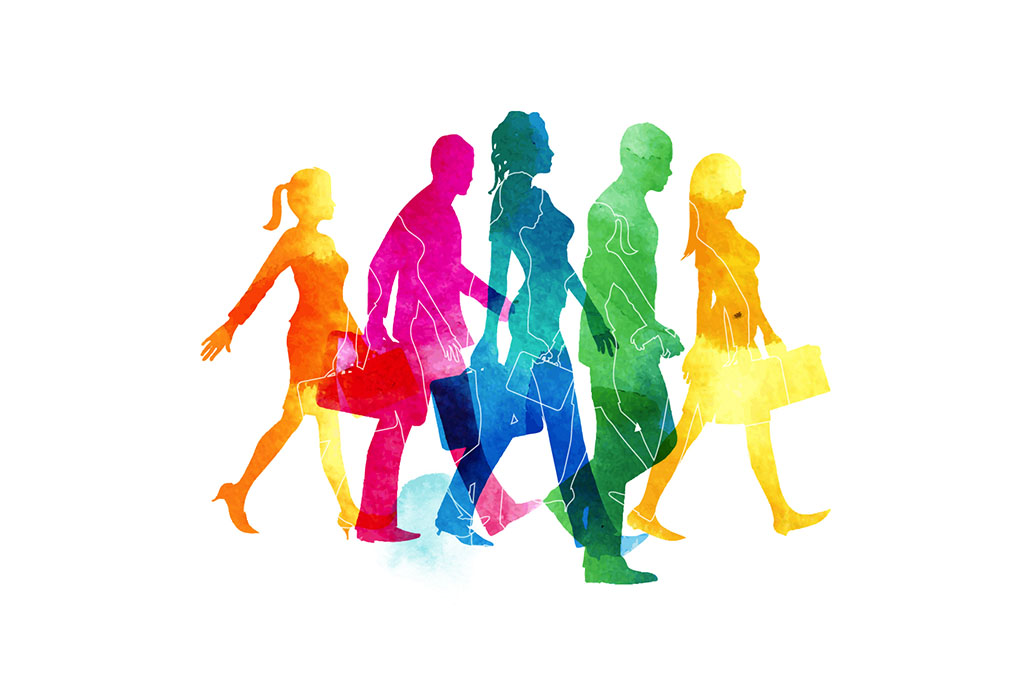How can we make the workplace become inclusive after the pandemic? A FU.SE virtual panel, convened in May provided insights and answers. Expert panelists for the session were Laura Liswood of the UN Foundation, Roz Hudnell, Former Vice President, Human Resources and President of the Intel Foundation, and Brian Gallagher, CEO of United Way. The discussion, moderated by Emma Nelson of Monocle24, echoed elements of the Adecco Group’s special report on Inclusion and Diversity: The Inclusion Imperative.

Take-outs for leaders:
-
Diversity of thought will help solve issues created by the crisis
-
The pandemic affects people very differently. We are not all in the same boat.
-
Now is the time to reflect and fundamentally rethink the business
-
The crisis must not be allowed to halt investment and planning for the future
-
Active measure must be taken to reach into companies to ensure diversity
-
Open, frequent and honest communication is key
Solutions require diversity
Turmoil following the pandemic creates additional pressure on companies seeking to build diversity. Nevertheless, the panelists revealed how failure to do so would be a mistake. To cope with the myriad of issues thrown up by COVID-19 requires creative solutions. “Where do you find that creativity and innovation?” to deliver those solutions, asks Laura Liswood rhetorically. “You find it through diversity. You find it through different voices. You find it through different sets of experience.”
It is perhaps no accident that some countries that dealt with the onset of COVID-19 most effectively – such as Germany, Iceland and New Zealand – are led by women. “It’s not necessarily that women make better leaders,” says Liswood. It’s more about diversity of thought. “We know that homogenous groups just don’t come to better solutions.”
Different Boats. Same Storm.
“What we are experiencing is the same pandemic, very, very differently – based on geography, based on economics, based on health, based on diversity, based on our age,” notes Roz Hudnell. Leaders should be aware that talk of everyone being in the ‘in the same boat’ does not reflect reality. The effect of COVID-19 on employees is highly disparate. When lockdowns ease, this means they will react very differently. Top talent may want to do things differently. Now we know that many jobs can be done effectively from home, people may not want to return to their offices, at least not full time.
Inequality revealed
With some of the lowest-paid employees now keeping companies running, is it time for leaders to rethink pay parity? Brian Gallagher notes that, as with natural disasters, the poorest and minorities are suffering most. Just as stark inequality was laid bare in New Orleans when Hurricane Katrina struck in 2005, so it is with COVID-19 in 2020. “We see what the global economy has achieved and where it has failed,” he said. Markets, he suggests, require intervention to mitigate inequality. A point, he concedes, which is resisted by some business leaders.
Fundamental shift
Panelists nevertheless agree that a return to normalcy is not possible. And even if it were, it would be undesirable. In response to the crisis, Gallagher suggests “our instinct has to be collective, not isolationist – but the pressure is going to be the opposite.” He concludes that “the idea we want to get back to normal is the wrong instinct – but also the strongest instinct.” Instead, leaders need to reimagine systems and start defining business success in human terms and in terms of sustainability, not solely in financial terms.
Laura Liswood picked on the crisis being a defining moment, with leaders needing to decide what they want to keep and what needs to change. World War 2 was a “circuit-breaker” for women, who found themselves working in factories, marking the start of a new chapter that could never be reversed. “That which we did before is not that which we can do in future,” she said. Roz Hudnell cautioned that companies still need to make money, but highlighted behavior changes that will be key drivers of change post-COVID-19. “Leaders do have a responsibility…because the consumer and employee expectation will demand accountability.”
Active measures
The panelists fear the shift towards remote working – and the digital tools enabling it – could end up embedding bias further into the workplace instead of liberating us. That some people are ‘over-heard’ or ‘under-heard’ in meetings will not change because those meetings are now virtual. Emma Nelson noted that development programs have been scaled back as companies struggle to find cash, with 60% of UK apprenticeships reportedly on hold for example. Recruitment will not improve if “people keep fishing from the same pools they’ve been fishing from,” adds Laura Liswood.
Some of the companies that recovered best after the Financial Crisis of 2007-8 were those that invested in technology and their people. “You have to keep investing – it’s almost counter-intuitive when everyone is trying to hoard their cash and reduce expenses,” notes Brian Gallagher. Once the decisions are made, the way they get communicated is also key. The crisis requires leaders to speak openly, frequently, and honestly. They must be willing to “show their work” to those around them says Roz Hudnell.
Watch the full FU.SE webcast:



